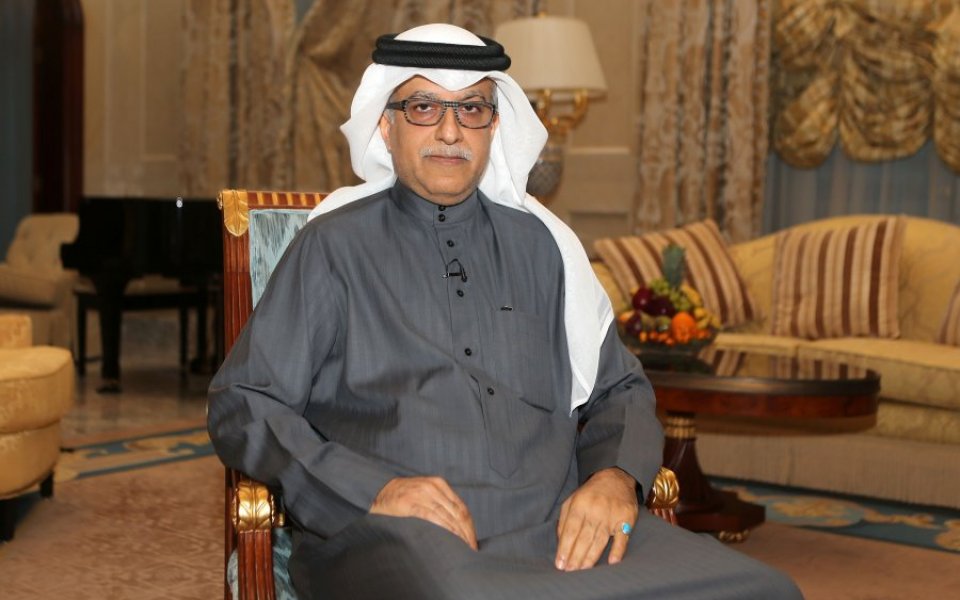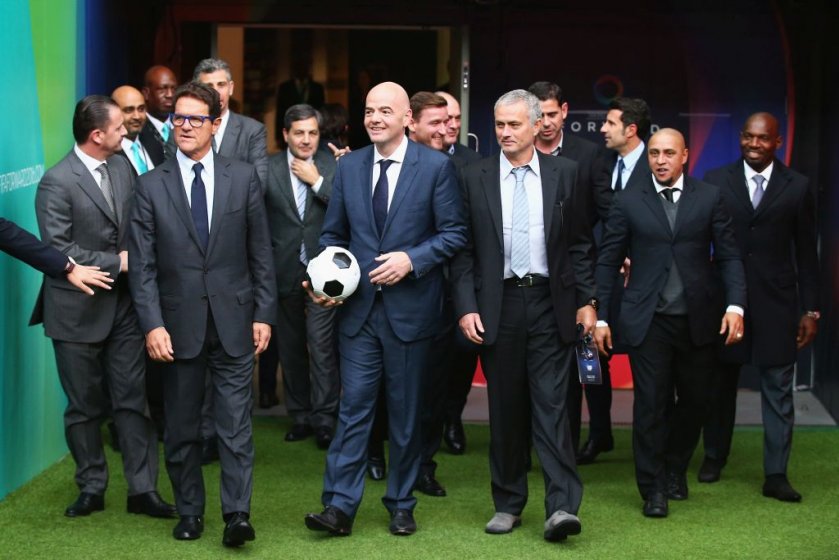Fifa is poised to elect Sepp Blatter’s replacement, but don’t hold your breath for real reform

Ever since the long arm of the FBI swept into Zurich’s plush hotels to arrest high-ranking Fifa officials nine months ago, the house has come crashing down on Sepp Blatter and many of his cronies.
With president Blatter and Michel Platini, his counterpart at European confederation Uefa, all but banished from the game after Fifa’s own ethics committee suspended them both for eight years just before Christmas, five men have thrown their hats into the ring for the top job and are set to stand in next week’s long-awaited election.
Yet anyone hoping for a fresh face untarnished by association with Fifa’s long history of seemingly entrenched corruption is likely to be disappointed and may have to brace themselves for more back-slapping business as usual, according to some reform campaigners.
“All of the candidates are Fifa or football insiders,” Bonita Mersiades, a former Australian football official and co-founder of the New Fifa Now group, told City A.M.
Read more: Meet the candidates to replace Sepp Blatter as Fifa boss
“They’ve worked inside the organisation, whether it be Fifa or Uefa. They’ve served inside on the executive committee before or are current members.
“One way or the other, they’ve sat around an important table within football and not ever raised any questions on some of the issues we’re currently facing as a sport.”
The frontrunner with a week to go until Friday’s election is Sheikh Salman bin Ebrahim al-Khalifa of Bahrain. Currently the president of the Asian Football Confederation (AFC), Sheikh Salman has kept a low profile in public but has been busy working the web of Fifa’s member associations and is thought to have secured the backing of the majority of associations within the Confederation of African Football (CAF) and AFC who have 100 of the 209 votes between them.
Yet his campaign has been dogged by allegations of complicity in the imprisonment of more than 150 Bahraini athletes who participated in pro-democracy protests while he was chairman of the country’s football association in 2010, as well as accusations he failed to prevent a match-fixer from organising an international friendly for Bahrain. He strongly denies wrongdoing in both instances.
“Sheikh Salman is absolutely entitled to a presumption of innocence,” says Mersiades, who worked on Australia’s doomed bid for the 2022 World Cup that was eventually awarded to Qatar.
“But the problem is no one can actually ask him the question because they get a legal letter. And he won’t have a proper discussion about these issues.

Infantino has received the backing of players and managers such as Roberto Carlos, Jose Mourinho and Fabio Capello (Source: Getty)
“And yet if a candidate is committed to democracy, if a candidate is committed to transparency and accountability, then the very least they should do is respond to questions from journalists and those raised on behalf of fan groups.”
Furthermore, a recent “memorandum of understanding to strengthen and intensify cooperation” signed between the Salman-headed AFC and the CAF has not gone unnoticed by rival candidate Prince Ali bin Al-Hussein of Jordan who has cried foul at what he described as a “blatant attempt to engineer a bloc vote”.
Prince Ali, who unsuccessfully stood against Blatter in May, is the only candidate to have come out strongly in favour of an independent body-led reform process. He is also, like fellow underdogs Jerome Champagne and Tokyo Sexwale, not expected to win.
Only Uefa general secretary Gianni Infantino, who entered the race just hours before the October deadline as doubts grew over whether Platini would be permitted to stand and is backed by the English FA and South American federation Conmebol, is considered a genuine challenger to Sheikh Salman.
Infantino’s campaign has been endorsed by celebrity football figures such as Luis Figo and Jose Mourinho as well as €500,000 (£385,547) of Uefa funds but his most headline-grabbing proposals for change have focused on the World Cup, namely expanding it from 32 to 40 teams and holding it across a region rather than an individual country.
And just as the other four candidates have spent time embedded within Fifa, the majority of the Italian-Swiss lawyer’s career has entailed working closely with the now-suspended Platini at Uefa.
Observers such as New Fifa Now argue that no candidate truly represents what Fifa needs to fix its image: independent, externally-led reform that goes beyond the identity of the president.
Read more: Three potential obstacles for Sheikh Salman in his bid to be Fifa president
“There’s no indication that there will really be strong cultural and systemic change in how they go about doing their business and addressing some of the issues that need addressing throughout the confederations and 209 football associations,” says Mersiades.
“You only have to go back to the words of the US attorney general when she said that the ‘Fifa way’ of doing business is broad, deep and like a racketeering organisation.
“On that basis having a different president is moving the deck chairs around the Titanic – even if that president may be in and of themselves attuned to what needs to be done and is an appropriate person, unless they’ve got the backing of the entire organisation to actually make change they’re not going to make it."